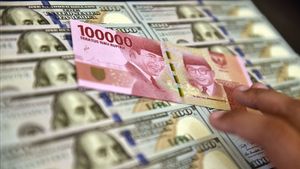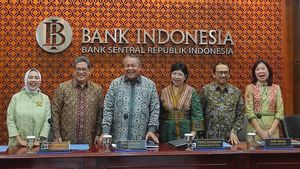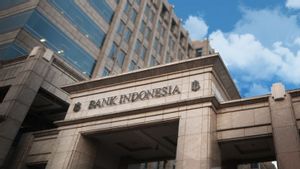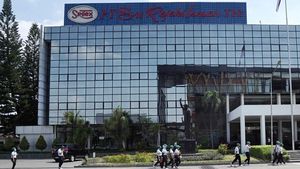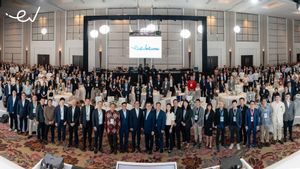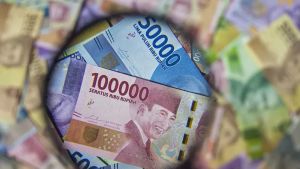JAKARTA - Bank Indonesia (BI) raised the benchmark interest rate for the BI-7 Day Reverse Repo Rate (BI7DRR) by 25 basis points to 6 percent in the Board of Governors' Meeting (RDG) which took place on 18-19 October 2023.
In addition, BI also raised the deposit facility interest rate and lending facility rate to 25 basis points each to 5.25 percent and 6.75 percent.
"The BI Board of Governors Meeting (RDG) on October 18 and 19, 2023 decided to raise the BI 7-Day Reverse Repo Rate by 25 basis points to 6 percent," said BI Governor Perry Warjiyo at a press conference, Thursday, October 19.
Perry said, there are several dynamics of global change that are fast and make BI need to change the direction of the first policy, namely that global economic growth will slow down with the divergence of widening growth between countries.
"Global economic growth in 2023 is estimated at 2.9 percent and slows down to 2.8 percent in 2024," he explained.
Perry added that it is likely that in the next two years in 2024 and 2025, economic growth will slow down.
Next year, the divergence of sources of growth between countries will still widen but only narrowed 2025 and only then will it be stable in 2026.
Another factor is stemming from the tension of geopolitical tensions which are currently increasing.
This geopolitical tension causes oil and food prices to remain high, so that it will slow down the decline in global inflation.
Furthermore, coming from interest rates in developed countries including the United States Fed Funds Rate (FFR) which is expected to still be higher for longer until early 2024, Perry estimates there is a possibility that around 40 percent of FFR will increase in December.
"But even though it goes up or not, it will still be high, especially in the first half of next year. It will only start to fall in the second half of next year, the FTR," said Perry.
Perry conveyed other sentiments from the increase in global interest rates which were not only in the short term, where the current US treasury yield interest rate is around 5.2 percent, while 10 years ago it was only 4.6 percent.
SEE ALSO:
According to Perry, another factor comes from global dynamics related to the implications of rising US treasury yield interest rates. This has an impact on capital flows from emerging markets.
"The flow of capital from emerging markets, which began to stabilize at the time of the day, has even begun to enter Indonesia and the emerging market country has returned to cash is the king. Many then moved to developed countries and also strengthened the US dollar," said Perry.
Perry said that this condition made BI have to increase the benchmark interest rate to strengthen the policy of stabilizing the rupiah exchange rate, high global uncertainty, and as a step forward looking to mitigate its impact on imported inflation of imported goods so that inflation remains under control in the target of 3 plus minus 1 percent in 2023 and 2.5 plus minus 1 oersen in 2024.
The English, Chinese, Japanese, Arabic, and French versions are automatically generated by the AI. So there may still be inaccuracies in translating, please always see Indonesian as our main language. (system supported by DigitalSiber.id)



